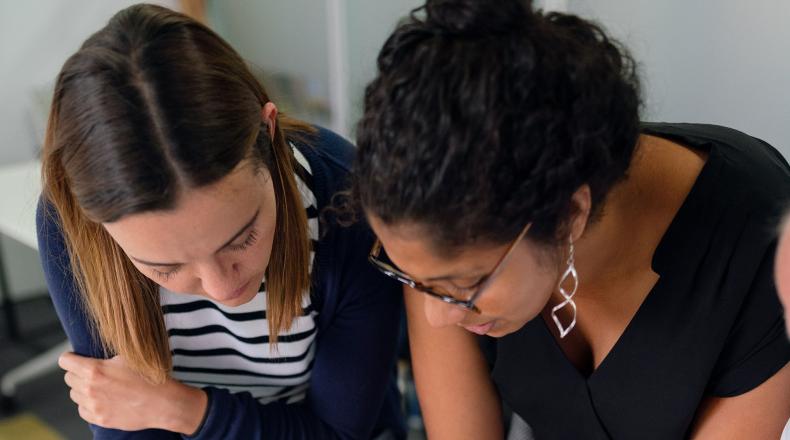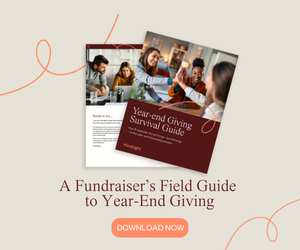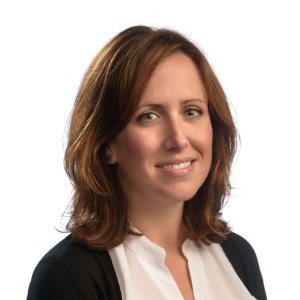Celebrating Women, Implementing Change

Today marks the start of Women’s History Month in the United States, and on March 8, we will celebrate International Women’s Day. As the current chair of the Women’s Impact Initiative (WII) for AFP Global, I’m proud to work on a committee that consists of women and men from a cross-section of industries, lived experiences and backgrounds. I learn from them every day and consider it an honor to serve alongside them.
However, as a white, cis-gendered woman I believe it is my duty – and privilege – to address gender discrimination in our sector. Our industry is highly feminized, with more than 70% of fundraisers identifying as female. And while we are a women-majority sector, we are far from being women-led, with less than 20% of CEOs identifying as female. Out of the top 500 companies and organizations in Canada, 109 do not have any women on their board of directors. An analysis of more than 8,600 companies in 49 countries showed women held 16.9% of all global board seats in 2018, up from 15.0% in 2016.
What’s more, the COVID-19 pandemic has amplified the inequities women face at work and at home. On average, women spend twice as much time on unpaid work compared to men. Despite equal pay legislation in both the U.S. and Canada, women are paid between 80% – 90% of what their male counterparts make in the same roles. I wrote extensively about this issue in 2020 and will continue to do so in 2021. We have so much work to do.
When we look at gender discrimination with an intersectional lens, the statistics are even starker. When we account for race, women of color face even steeper penalties in the workplace. In the recent Globe and Mail Power Gap series, an analysis was done of the top public sector earners in Canada. Of the top 1% earners in Canada, 27% were women, and of that 27%, only 2.5% were women of color.
It is imperative that we celebrate the many women of color who spoke out in 2020 against the injustice, inequity, racism, sexism, and harassment they face in the workplace. We owe it to them to read, listen and learn about how our sector contributes to these problems and recognize what we can do to change this.
I think of the 13 brave women and lone man who wrote “Collecting Courage: Joy, Pain, Freedom, Love,” which served as the foundation of AFP’s Our Right to Heal project. Nneka Allen, Nicole Salmon, and Camila Vital Nunes Pereira edited this incredible book that highlights Black women’s experiences in the fundraising sector. They detail the systemic racism, white complacency, and barriers Black women – and women of color – face every day at work. Their stories are bold, brave, raw and uplifting; they brought me to tears, and they inspired me. I would encourage you all to take time to buy this book as it should be mandatory reading for our sector.
Please join us this month in honoring and lifting-up women’s voices in our sector. Take time to read their stories, listen to their thoughts, amplify their voices, and work with them in allyship. Encourage your chapters to focus on the small things they can do to remove barriers and open the sector to a more diverse and vibrant community.
As the brilliant Ruth Bader Ginsberg once wrote, “real change, enduring change, happens one step at a time.”


 Liz LeClair, CFRE (she/her), is a white cis-gendered fundraiser based in Halifax, Nova Scotia, in Canada. She currently serves as the director of major gifts at QEII, a health sciences foundation. LeClair has been a member of AFP since 2005 and currently chairs AFP’s Women’s Impact Initiative, which is focused on research and advocacy around women’s issues in the sector. For more information on WII and how you can help, please visit
Liz LeClair, CFRE (she/her), is a white cis-gendered fundraiser based in Halifax, Nova Scotia, in Canada. She currently serves as the director of major gifts at QEII, a health sciences foundation. LeClair has been a member of AFP since 2005 and currently chairs AFP’s Women’s Impact Initiative, which is focused on research and advocacy around women’s issues in the sector. For more information on WII and how you can help, please visit
